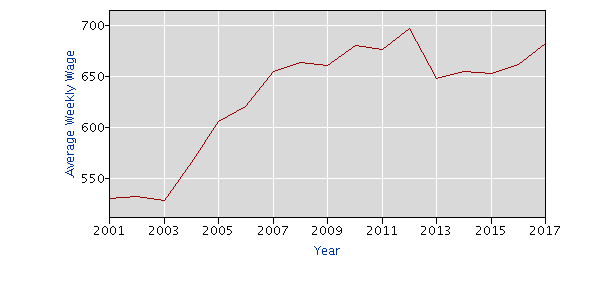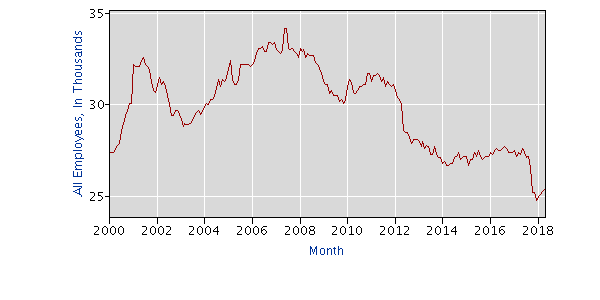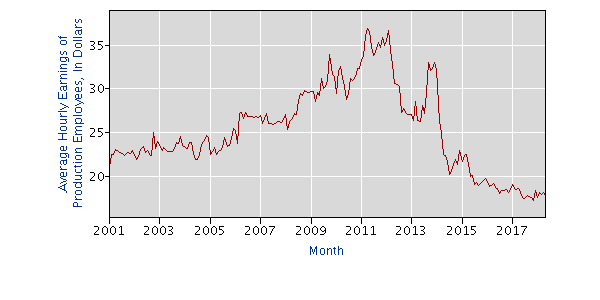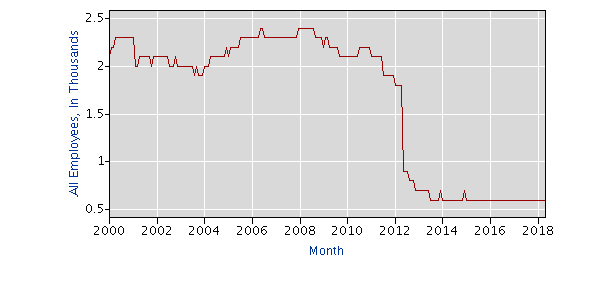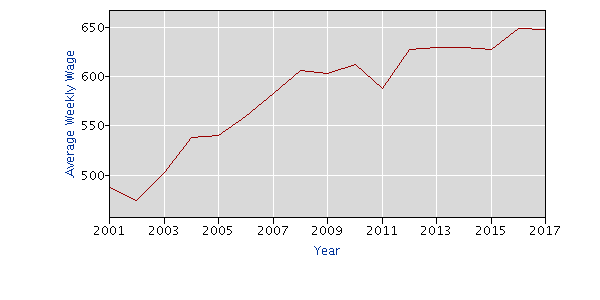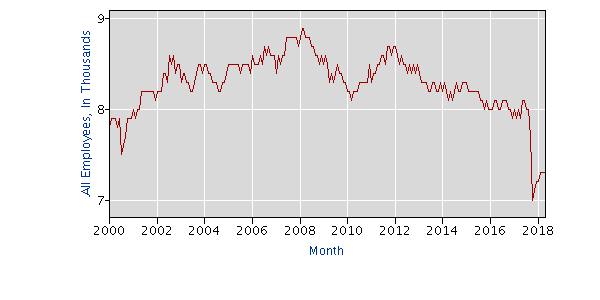Gross Domestic Product
Real GDP (a measure of economic growth) mostly declined from 2008-2014, but has begun growing slightly from 2014-2016, growing from $3.087 billion to $3.124 billion.
Jobs
Private-sector employers have lost 10,000 jobs since 2010, the national low point for private-sector employment. From 2017 to 2018 the private sector lost 5,000 more jobs. There were 25,000 total jobs in the private sector in 2018, 12,000 less than before the recession. Average hourly wages in the private sector grew from 2003-2012 but fell from 2013-2015. Wages have recovered since then, rising from $16.25/hr to $17/hr from 2015-2017.
Manufacturing employment dramatically declined after 2011, causing total manufacturing employment to fall from 2,000 to 600 by 2012, where it remains in 2018. Average hourly wages of manufacturing employees significantly increased from 2001 to 2011 but have heavily declined since then, falling from a peak of $35/hr to $18/hr by 2018.
There were 7,250 jobs in the Transportation and Warehousing sector in 2018, 1,500 less than before the recession, showing growth in this sector. The average wage in Transportation and Warehousing sector was $15/hr in 2008 and $16.25/hr in 2018.
Unemployment
The unemployment rate in 2017 is 10%, the same as in 2016. This is far above the national average of 3.9% unemployment.
Housing
The Bureau of Labor Statistics does not collect a House Price Index or Consumer Price Index for the Virgin Islands. Supplemental data suggests that house prices crashed after 2008, but have briskly recovered since then.






